When I walked into a mum and baby event and met baby sleep consultant Emilie Caro about a month ago, I was blurry eyed, drained and running on coffee and sugar. My five month old Hector wasn’t sleeping brilliantly and being up all night, every night breastfeeding him every couple of hours was the norm. He had become accustomed to breastfeeding throughout the night for comfort and things were showing no signs of slowing up anytime soon. I was exhausted and pretty fed up, so meeting baby sleep training expert Emilie was a bit like discovering the mum holy grail. We’ve been working together since with a mission to get Hector back on an even keel, to break the cycle of bad sleep habits and essentially nail baby sleep training so that he sleeps through the night, every night. (Well, most nights would be fine by me to be fair!)

Now, if you’d said to me before I met Emilie that a baby sleep training expert could show me the no-fuss, easy, non-judgemental approach to getting a good night’s sleep for the first time since my baby was born, I’d probably have laughed in your face. You get to the point where there’s so much advice around, and so many opinions and tips being offered up from friends, family and people around you, that you sort of switch off to the external input. I’d reached peak ‘newborn fog’, so tired and going through the motions that getting through each hour with my baby boy was the only thing my brain could compute. I had naturally got to the point where I needed an outsiders help, some objective advice on the whole thing, but didn’t really know it until a chance meeting with Emilie came about.
So many of you contacted me on on my social channels while I went through the initial baby sleep training process, asking questions about it all, or checking in to see how it was going, which was such a great motivator and really did help me not to give up when it got tough, so thank you! Here I’m going over the basics, sharing what worked for us, so you can learn a little more about what baby sleep training expert Emilie Caro does and take away from my experience what you can to help get yourself and bubba back on the path to good night’s sleep too.
This is what worked for me, my family and most importantly for Hector. During my consultation with Emilie Caro Sleep we discussed everything from my pregnancy, delivery and how Hector was after birth. His milk consumption, behaviour and temperament, whether he was breast and/or bottle fed, where he slept, what our days were like, whether I was back to work and so on. She took into consideration that Hector was a reflux baby and that he was born early (two weeks before his due date.) Her service really is a prescriptive service for each individual family, mum and baby she works with. l couldn’t recommend her enough.
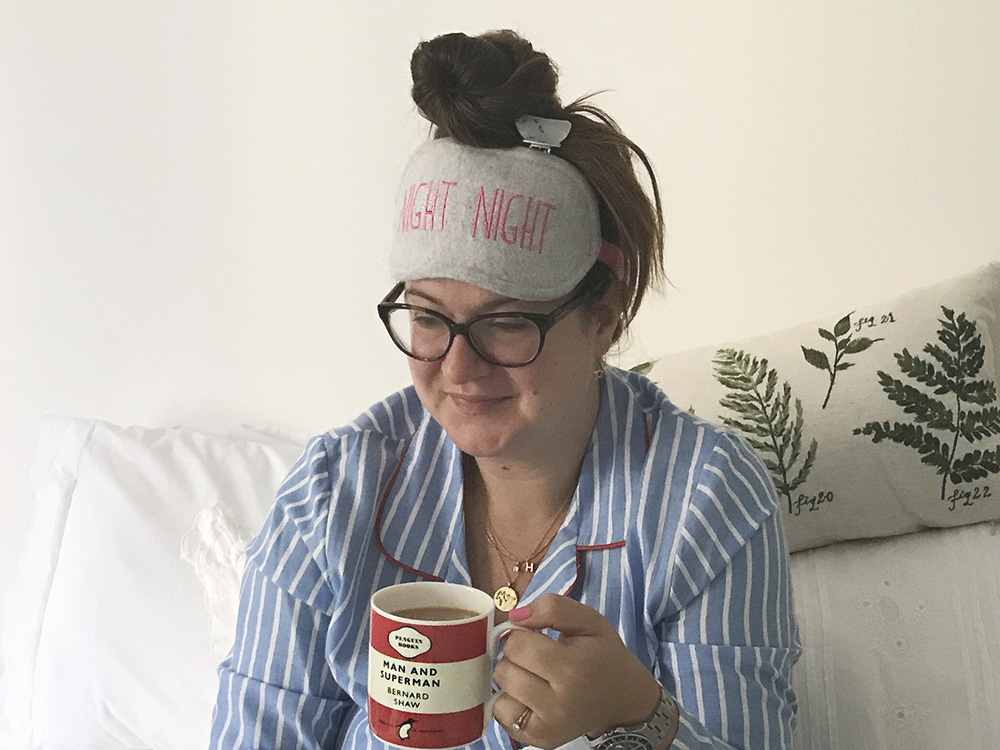
Why Did I Decide To Do Baby Sleep Training?
Hector is my first baby. No book, blog, magazine, midwife or member of your family can prepare you for the moment they come along and turn your world upside down. Your time is no longer your own, making a cup of tea becomes a huge task (drinking it while it’s still hot is another level of difficult!) Showering, doing the shopping, cleaning the house, replying to friend’s text messages – all normal, doable activities pre-baby, but post-baby, in those first few months, forget it!
I’m sure not everyone feels the same way as me, but this is just how I felt right at the start, completely overwhelmed by the reality that I just couldn’t get anything done anymore. Hector needed me for food, love, cuddles, sleep, play, nappy changes, mopping up reflux and being mum 24/7. Everything else just had to wait. As the days went on and became easier and the general baby duties and ‘firsts’ like getting the pram out of the house on my own, driving with him in the back of the car, taking a trip into town, bath time and so on became second nature, I just hadn’t realised I had got myself into a serious mum fog. I was stuck on repeat, coasting along. It was a kind of Groundhog Day vicious circle I couldn’t get out of.
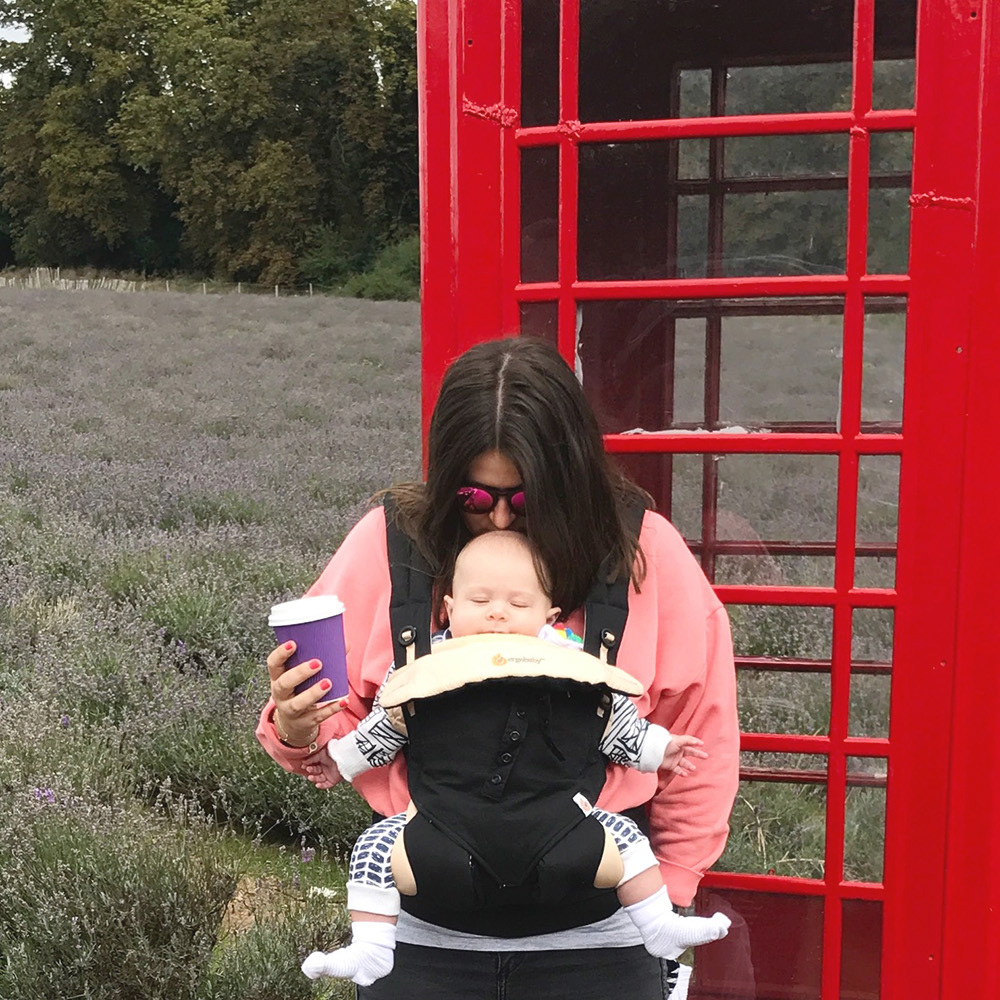
The days were full on. I’d been taking an ‘on demand’ approach to looking after him for the first few months, what he needed, he got, and that included breastfeeding him whenever and wherever he needed it. Before I knew it I was feeding him throughout the night on a two hour basis. It was our norm. Like clockwork, every couple of hours Hector woke up crying and I automatically picked him up and put him on the breast to feed, settle and go back to sleep. Two hours later, we’re back to square one, starting the whole feeding, soothing, settling process all over again. By the time morning came he was knackered, I was knackered, my husband was knackered – it just wasn’t working! I thought it was totally normal and necessary to be up so often feeding my bubba, which was true at one, two, three, even four months but at five months, when breastfeeding was well established and his tummy had grown so much in size, was it really necessary to be up all night topping up baby?

Was Hector Feeding Throughout The Night For Comfort?
When Emilie asked me about how Hector was sleeping and I relayed the story she asked why I was feeding him every two hours. I replied ‘because he’s hungry.’ Emily replied: ‘But is he really hungry, Lucy?’ Then the penny dropped. I had assumed Hector was hungry throughout the night, as he was as a newborn, but the reality was that he was most likely just looking for comfort. I hadn’t even given other settling techniques a try because my brain was so fried and it just hadn’t occurred to me! Emily went on to quiz me about mine and Hector’s daily routine and it got me thinking, we didn’t have a routine. I’d been coasting along, sleep deprived and running on empty, with absolutely no established strategy or order to Hector’s day. He was feeding lots throughout the day, taking quick snacks but no lengthy, hearty feeds and I was nowhere near to putting a four hour feeding plan in place.
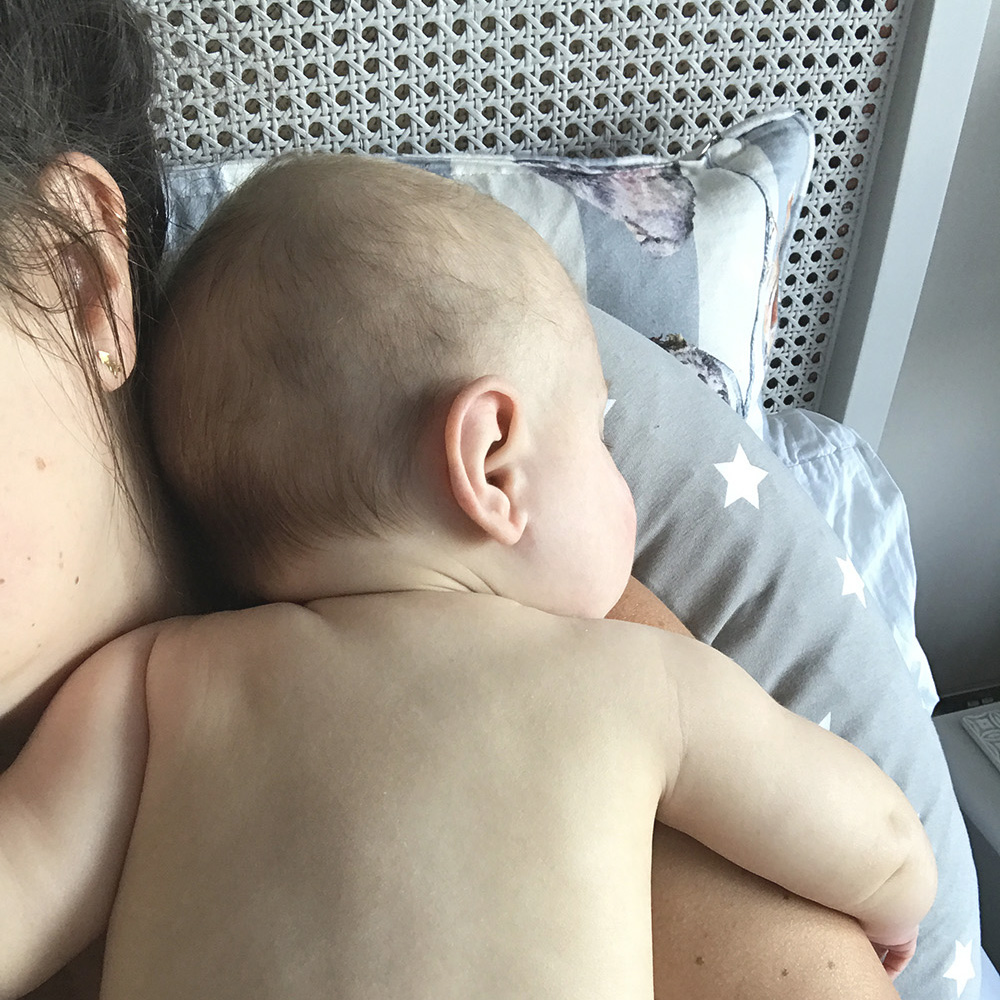
So, What Was Top On The Wishlist?
After my consultation with Emilie we came up with a list of the areas that needed addressing and a set of baby sleep training goals:
To ensure Hector is in a suitable routine (sleeping and eating) for his age and needs
Help to eliminate night waking and if he does wake, to be able to resettle him quickly in his own cot
Encourage Hector to wake up closer to 7am in the morning
Emilie had assessed that Hector had established a disturbed sleeping pattern due to a lack of consistent daily routine. Hector did not yet know what was expected of him during the day and night and when he woke in the night, bad habits were reinforcing this lack of routine. Too many long cuddles, bringing Hector into our bed in the early morning, offering milk on demand and the general comfort of breastfeeding, communicating with Hector throughout the night when he woke up and having quite a bit of his milk intake during the night instead of the daytime, all contributed to the negative place we’d got ourselves in.
She explained that it would be tough implementing a new routine at first and that there would be nights where Hector couldn’t get himself into a deep sleep after night waking, but by breaking the bad habits myself and my husband had started, we could reverse the disrupted sleeping pattern. Essentially, implementing a strict, consistent routine day and night would result in Hector feeling secure and comfortable with going to sleep and sleeping through the night.
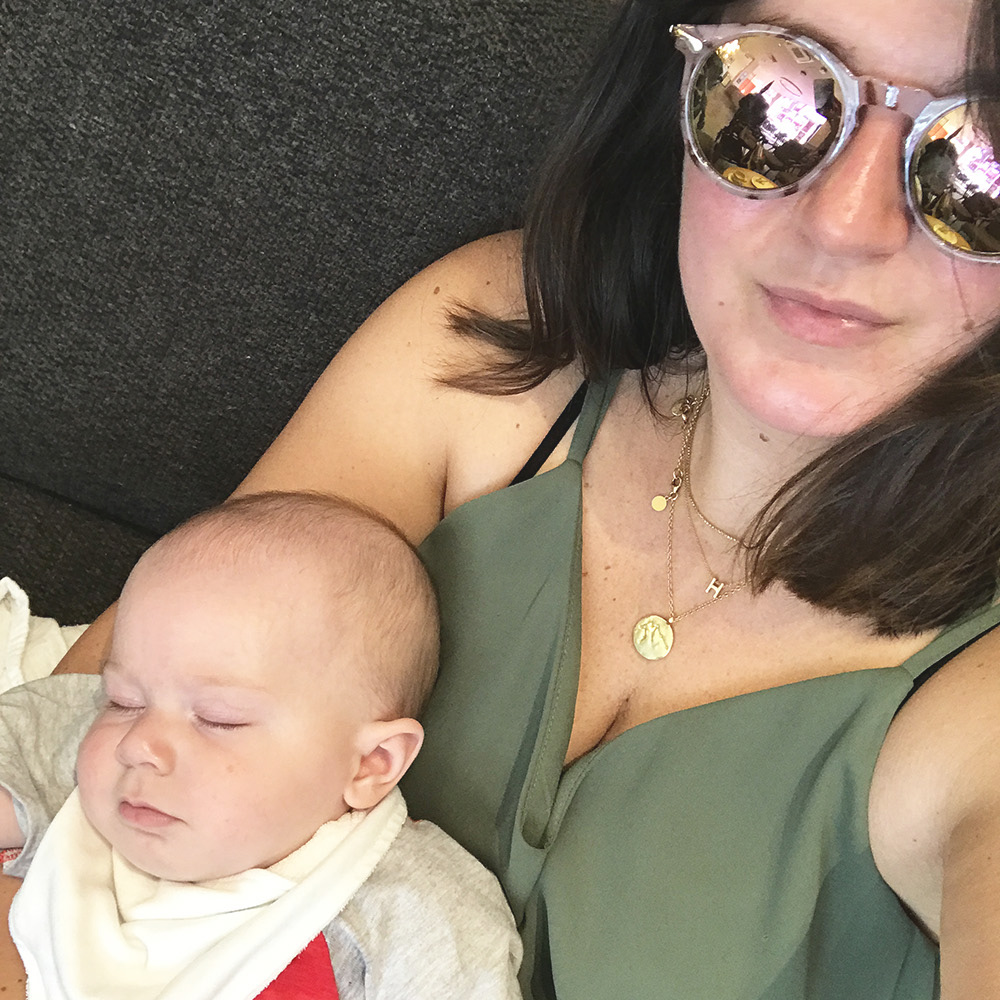
What Are The Key Rules For Baby Sleep Training?
Emilie devised a plan to get Hector back on track. Here are the key rules and factors that we now stick to (or at least try to stick to) a month or so on. Consistency is everything with sleep training! Using a method of gradual retreat, we were able to help Hector to settle himself to sleep in his cot at nap times and during the night.
The only tools permitted for resettling Hector are using a verbal ‘shhhhhhh’ in his ear or a simple statement of ‘lie down’ as well as patting and stroking his back for reassurance. It’s important that anyone caring for Hector, whether my husband, grandparents or friends, use the same words and sentences when trying to settle him. These tools help to encourage a good sleeping pattern, and it’s important as Hector gets increasingly upset or frustrated during the night or at any sleep time that we don’t increasingly talk to him as this will be positive reinforcement for his actions and encourage him to continue with this behaviour, rather than lying down quietly.
We only pick up Hector if he is crying really, really hard, and if we feel he is getting to a hysterical state or that we just can’t take it anymore! We hold him close and then put him back in his cot when he is calm. It’s key here not to hold him for longer than necessary or encourage him to fall asleep on us. To stop him waking up further while we are holding him, we do not move around the room, sit down or talk to him. Emilie suggested that if we found it really hard to watch him cry then to time five minute intervals on our phones and then pick him up and cuddle him briefly at those times. But to not pick him up more regularly than that, as it would confuse him and move the perimeters of what’s expected of him.
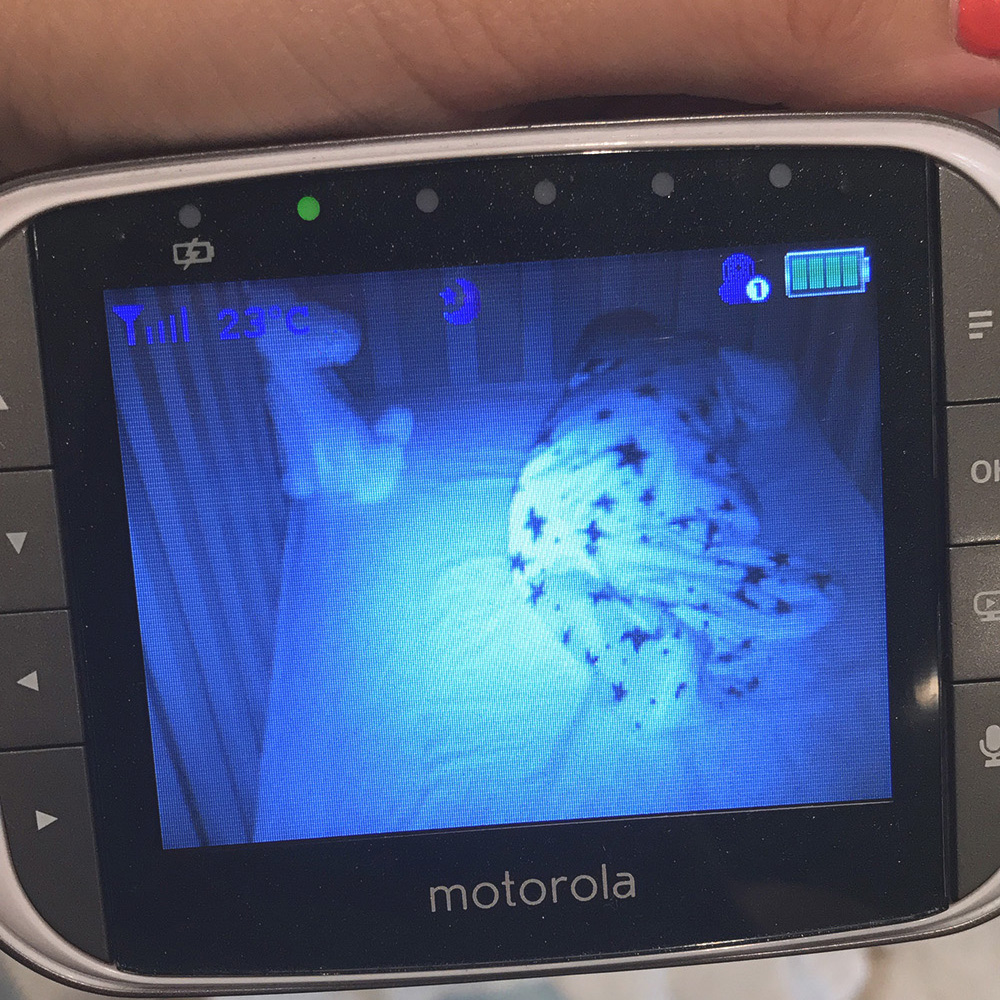
When Hector was still in his next to me cot and was unsettled, we lied down on the bed and reached over to the cot positioned right next to us. Getting up was last resort. The aim of gradual retreat was to get to the point that when he woke he didn’t need us for comfort, but would instead self-settle. When we felt Hector’s settling improved, we took the opportunity to move him into his own bed in his own room. This helped so much with his sleeping through as we weren’t disturbing him when we came to bed at 10pm. We gradually built up to not needing to go into his room every time he cried. A lot of the crying was in his sleep, his eyes weren’t open, and he would soon roll about to or suck on his fingers to self-settle. Eventually, he was able to self-settle on all occasions, as his routine was so well established.
At first, when Hector woke during the nigh and was in the wrong position for sleep then we went in and moved him back into ‘sleep position’ but now he wriggles a lot throughout the night and we don’t feel we have to keep repositioning him. He is quite capable of moving himself around the cot, and I ensure there’s not any toys or bedding in reach that he could get tangled up in. He wears a sleeping bag.
We worked towards no milk being given during the night as it had become a habit and his tummy was accustomed to waking for food out of habit rather than need. As soon as he realised that nothing exciting or fun happened when
he woke at night and in fact it was very boring, he did not continue to wake up and if he did it was easier to settle him back to sleep as milk was no longer involved.
Now, if Hector wakes in the night only one parent handles it on a particular night, as it is confusing for Hector to see Dad and then Mum on the same night coming in and out. Emilie made a great point not to be afraid of handing over one night or two to Dad here and there. It was good for Hector to have him taking care of him as well, and my husband could always wake me as a last resort for feeds if he really feels nothing else is working in the early stages. This is good from the point of view of consistency again and it means Hector will not play up for one parent in order to get the attention of the other one.
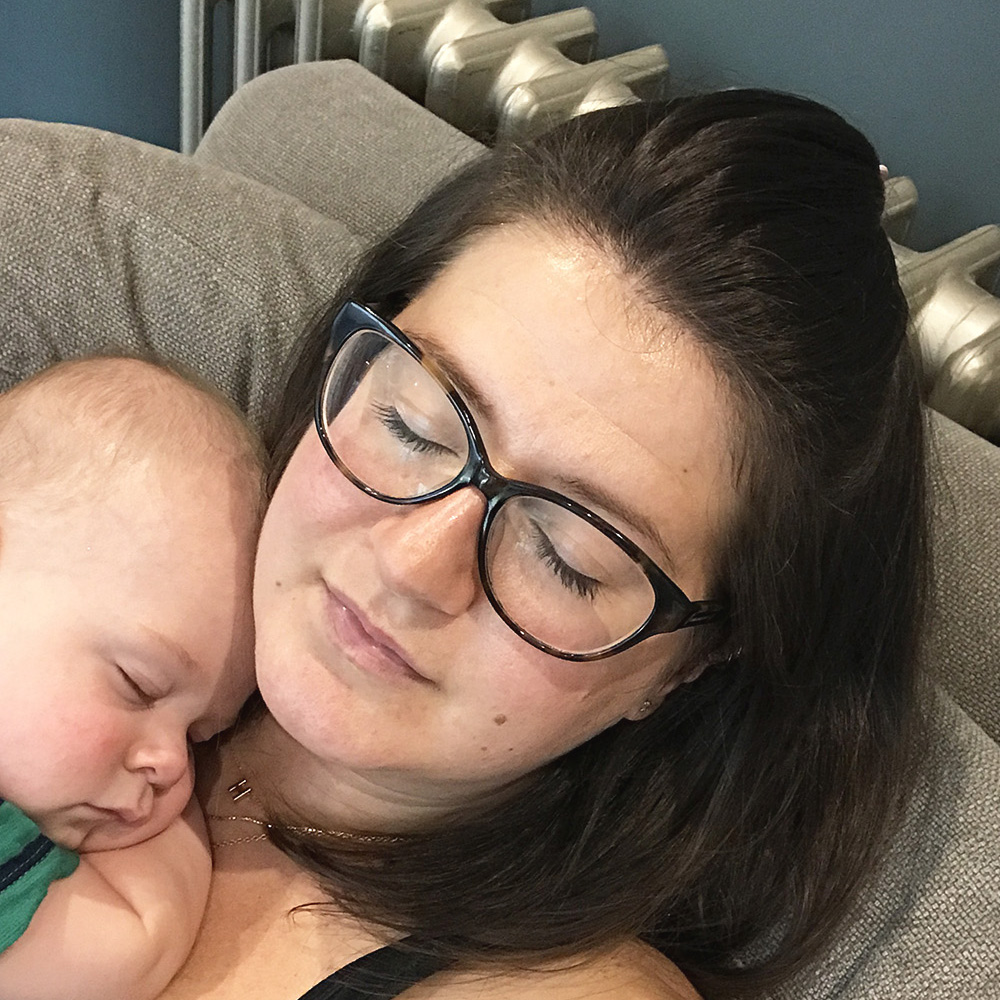
Baby Sleep Training: Things To Remember…
Yes, it’s a tough approach at first but the results are so quick it’s worth putting the effort in and being really strict and consistent at the start. Once a firm routine is in place and things start to improve, you can relax a little bit, but it is really key in the first few weeks that you stick to the baby sleep training rules as closely as you can.
In order to achieve this it is essential that you and anyone given charge of Hector are able to understand the principles used so that you can encourage Hector to respond positively to the boundaries that you set. Be firm with family and be honest about how you’re feeling. I was really at my lowest point with the broken sleep and something HAD to change.
If one day things are not exactly as planned, don’t freak out, the routine can be picked up the day after. This is particularly worth remembering when you’re away on holiday and visiting family. The routine will slip. Don’t panic, it will all get back to normal when you’re back home. Be flexible, if one day it slips, make sure the next day is as close to the routine as possible. I’ve cancelled plans a day’s gone completely wrong and I’ve felt I’ve needed to be at home with no other distractions the following day in order to make sure Hector was back in his strict routine. You can judge it by their behaviour.
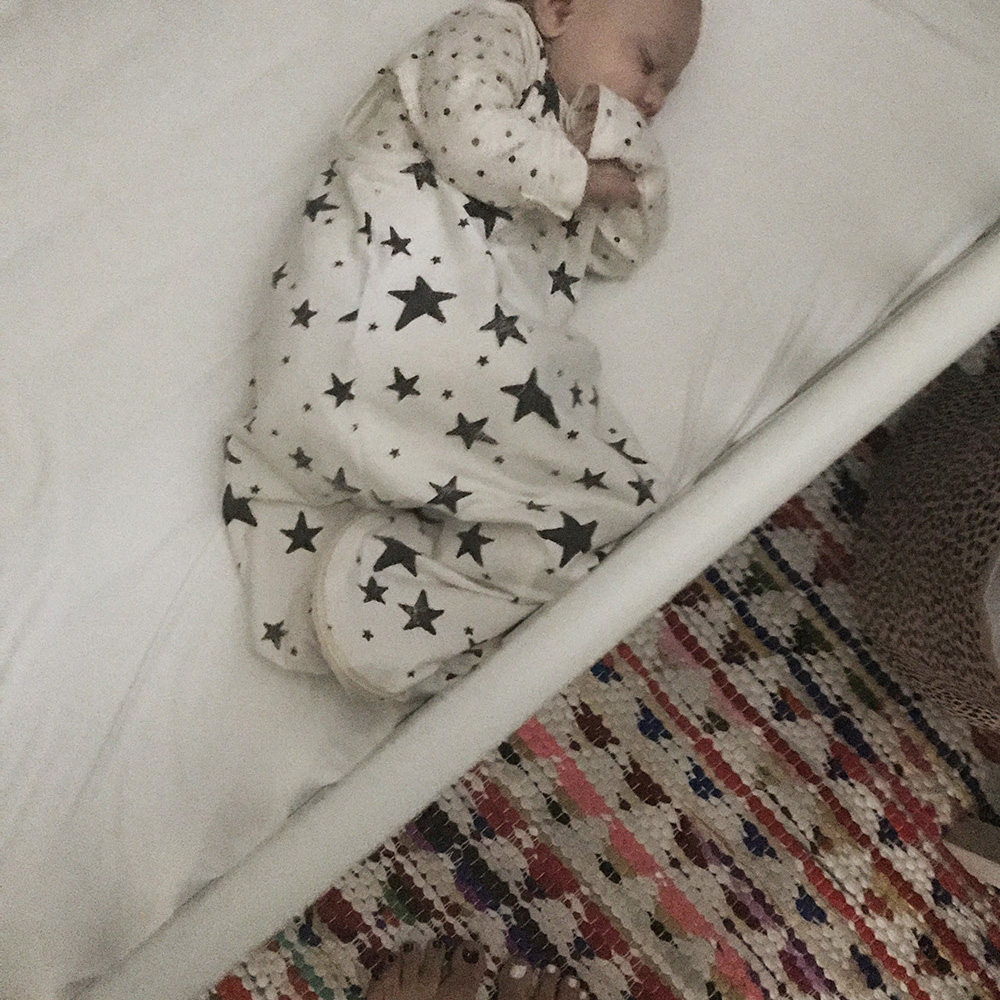 What Is Our Daytime Routine?
What Is Our Daytime Routine?
A big factor contributing to Hector’s bad sleeping habits with a general lack of any daytime routine. As I said, I’d been coasting along in the newborn fog and not really paying much attention to timings and what happened when. But when the decision was made to implement Baby Sleep Training with Emilie Caro, I decided it was time to fully commit to an all round routine for Hector too.
My aim was to stick to the routine as rigidly as I could without letting it completely rule my life aka social life. And by social life I mean Hector’s social life! Hector has quite a few baby classes during the week – swimming, baby sensory, messy play, and so the routine needed to fit around these, but also when I did have a day or meetings or we were having a day out visiting someone, the routine needed to work around us too.
I also felt ready to stop breastfeeding, and this was a big turning point in my sleep training journey too. I’d made it to six months exclusively breastfeeding Hector – yay – but in all honesty had had enough of it and wasn’t enjoying it anymore. I personally felt that I had done my bit and that as I felt so tired enough was enough. Breastfeeding was literally sucking the life out of me. The trigger happened when Emilie told me how important it was to ensure that Hector was having a good 6oz feed before bed if the baby sleep training had any chance of working. Whether that was expressing breast milk or formula, by giving it in a bottle we could then be sure that he had drunk enough milk to be sufficiently full throughout the night. Now, there was no way I was going to be able to express that much milk! I found breastfeeding and supply fine once it was established but expressing just seemed like a bit of a pointless exercise. I felt I would rather be feeding baby that pumping, so I made the decision to go onto the bottle.
There was a lot of change going on all at once, which I am well aware won’t be suitable for every family. However for us, it was time to make some changes and by throwing myself info the baby sleep training routine, switching from breast to bottle and moving Hector into his own room, I could see instant change that was making him happy. Hector took to all the change like a champ and really didn’t have too many problems going into his own room or taking the bottle, it was the day time routine that we both found the hardest, as I’d been going with the flow, suddenly I felt so tied by such strict timings. You just can’t argue that baby prefers the routine though, they know where they are at and it makes them all round happier, particularly enforcing regular naps.
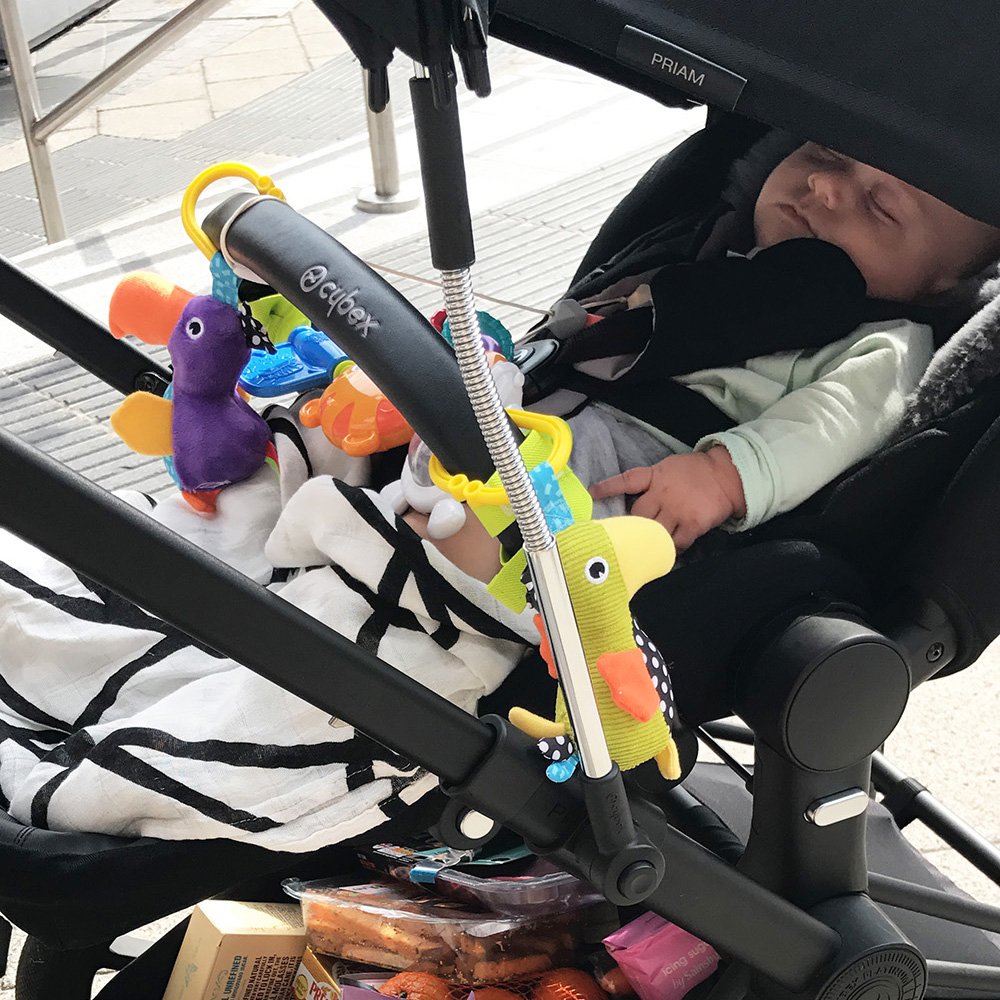
The Routine (Six Month Baby)
A suggested routine for the day is:
7am: Wake up and bottle. (Hector is woken by 7.15am if he’s not yet awake, which he usually is! If he wakes up before 7am and won’t resettle, he is not given any milk, we keep the lights low and cuddle or read a book to encourage him not to wake up until 7am.)
8am: Breakfast.
Anytime from 9am: 30 Minute Morning Nap. (Timed nap and woken after 30 mins. Generally this is on sofa/in his buggy if we’re out for walk.)
9am: Morning activity, such as a trip to the park, shops or a playdate. (If Hector wants to fall asleep on the way back from an activity, I try my hardest to keep him awake, as even a 5-minute nap can disrupt things later in the day.
11am: Bottle. (This was dropped as soon as Hector was taking solids well.)
11.30/12pm: Lunch.
12.15pm: Begin settling Hector for bed. (Low key play/book, then up to bed for 12.30pm. He goes into his sleeping bag, the blinds are shut and monitor is turned on, as I would for night time. The aim is for him to sleep between 12.30-2.30pm. Generally, he sleeps for the full two hours. His brain needs the switch off, and I’ve found he is so much happier in the afternoon when he has had his full two hours sleep. I wake Hector up at 2.30pm. Emilie’s strategy is that in order to get the consistency we need for his routine, he must not be allowed to make up for lost sleep during the day. When I am out and Hector is in the pram for nap time, or in the car seat, I’ll pull over the hood, tuck him in with a blanket and try to keep external noise to a minimum!)
3pm: Bottle.
3.15pm: Afternoon activity. Sometimes just a walk around the block or a walk around the garden exploring the plants is enough to get him some fresh air and most importantly, provide that change of scene.
4pm: 15 minute power nap, either on the sofa or in his pram/carseat. (I’ll push this to 20 mins tops, not longer!)
5pm: Supper.
6.30pm: Bathtime.
7pm: Story time followed by a long calm bottle, upstairs and away from any distraction. Generally my husband does bath time and the evening putting to bed, and Hector really enjoys this quality time with Chris. He also appreciates the signals that it’s time to go to bed. Again, consistency here is important.
7.15/7.30pm: Hector goes into his cot for bedtime. We put him down awake, often quite sleepy already from his bottle, and he spends 10 minutes self settling, which is generally him wriggling around the cot trying to get comfy and sucking on his fingers. I’ll keep an eye on the monitor to see when he drops off to sleep.
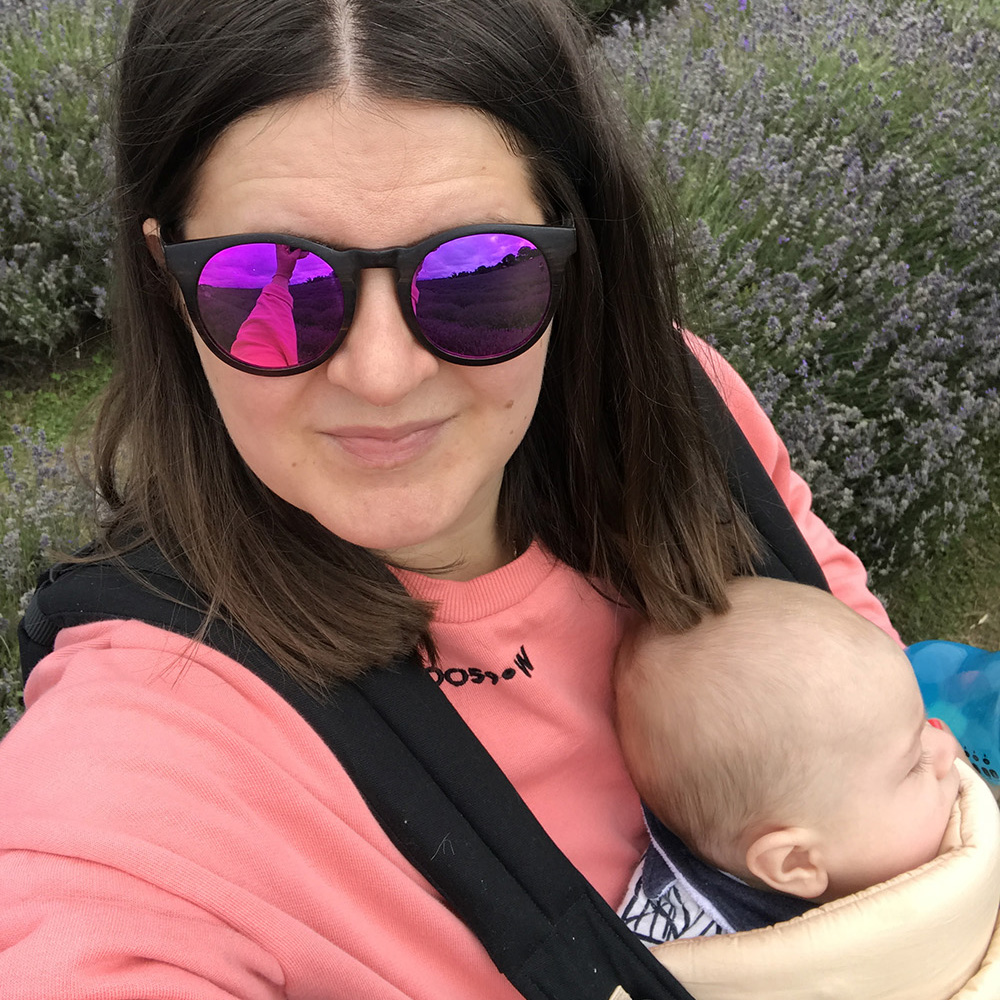
Mama, You’ve Got This!
Ok, that’s a heck of a lot of information in one go, right? I was totally overwhelmed when I first started the Emilie Caro Baby Sleep Training process too. But I figured that it couldn’t get any worse than the exhaustion I was experiencing, and that if I had managed this long on so little sleep, that by focussing just a little more energy (I found it from somewhere!) on getting a sleep training routine in place, then all in all, it would lead to better things. And I was right, by about day five I was already noticing the difference in Hector’s general wellbeing, mood and behaviour during the day. The best part came when he slept through from 7.30pm to 7am for the first time. It was day eight, and he didn’t need us to go into his room once for back packs and reassurance. Since then, he’s pretty much slept through every night, with the occasional slip up when we are out for supper in the evening, or are staying with family for the weekend. At the start I found he’s wake up at 5am a few times and not go back to sleep, and we had to take him downstairs and read to him or do low key play. It was these moments where I nearly gave up as you think things aren’t working but by sticking with the routine, he soon realised there was no point getting up at 5am because there would be no bottle until 7am anyway. The cycle of bad sleep – and comfort feeding through the night – was broken!
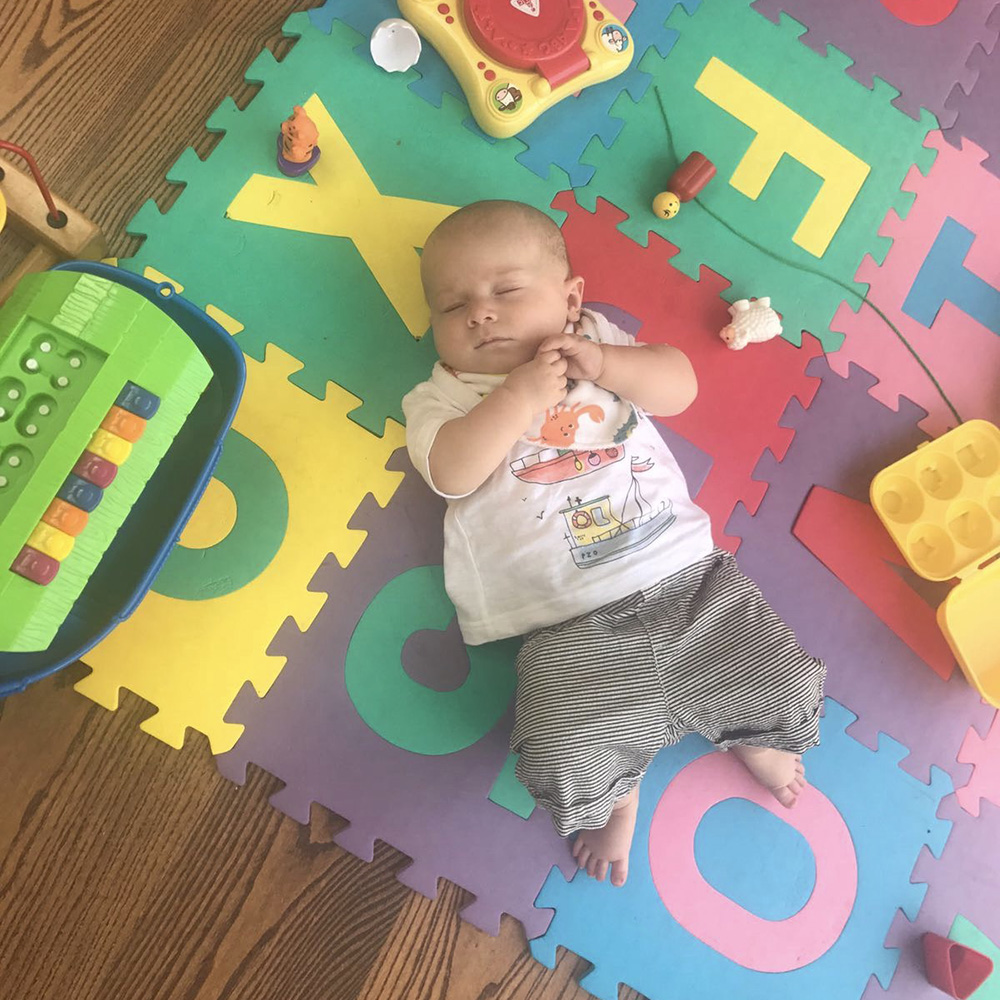
Tools To Help The Baby Sleep Training Process
I really struggled to keep Hector awake in his pram or car seat when we were out and about and it wasn’t nap time. He was too used to sleeping when and wherever he wanted (case in point the above pic where he just crashed out on a friends kitchen floor during a play date!) Engaging and stimulation toys for his pram and car seat really helped.
A good sleeping bag, light show/melody maker and favourite teddy for bed and to provide consistency at bed time.
Getting out for fresh air – just as important for me as it is Hector – and significantly improves the quality of sleep a child gets at night.
Pregnant? Got questions? Stick the kettle on and head over to Pregnancy Survival: What To Expect.








-
-
-
-
-
Share